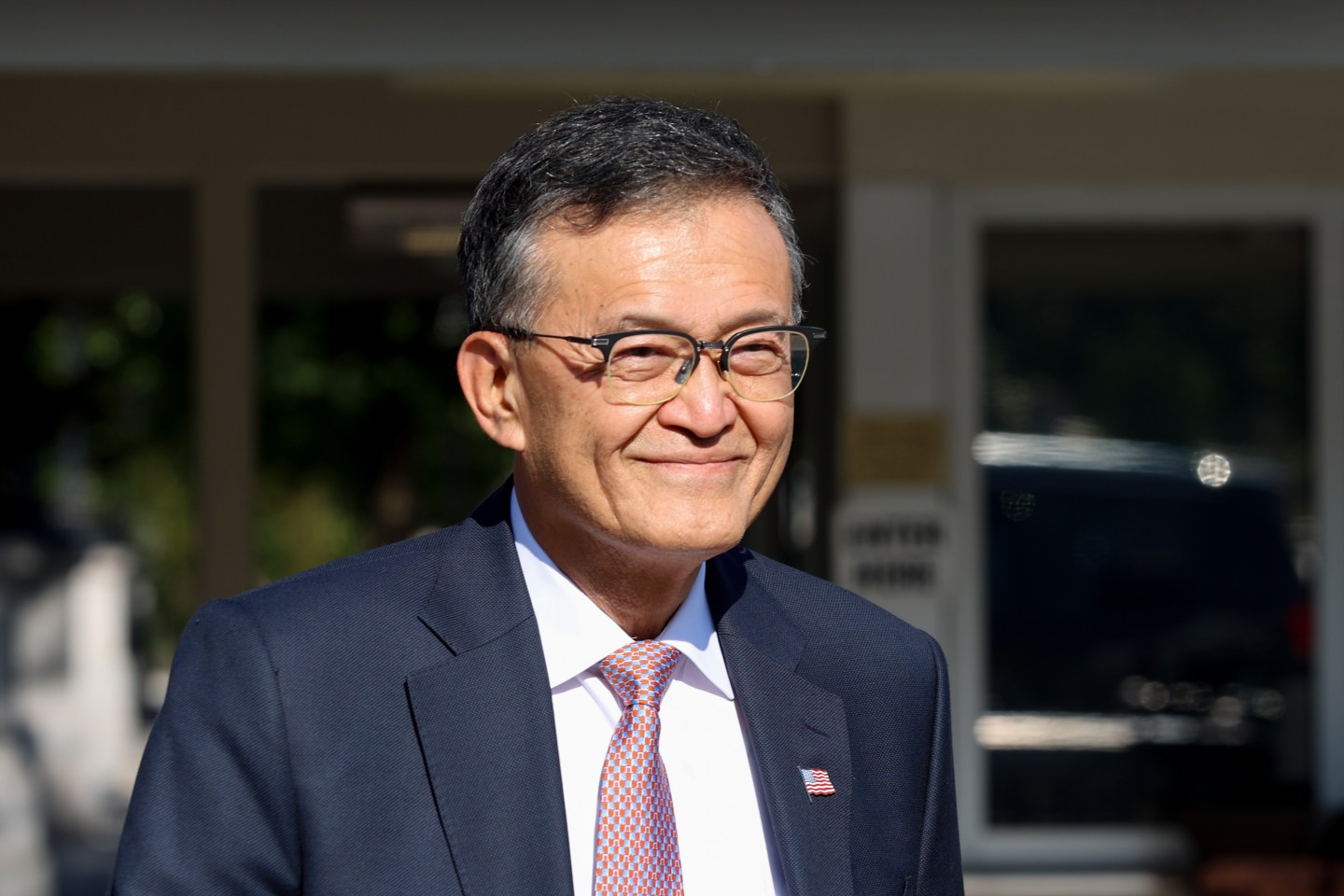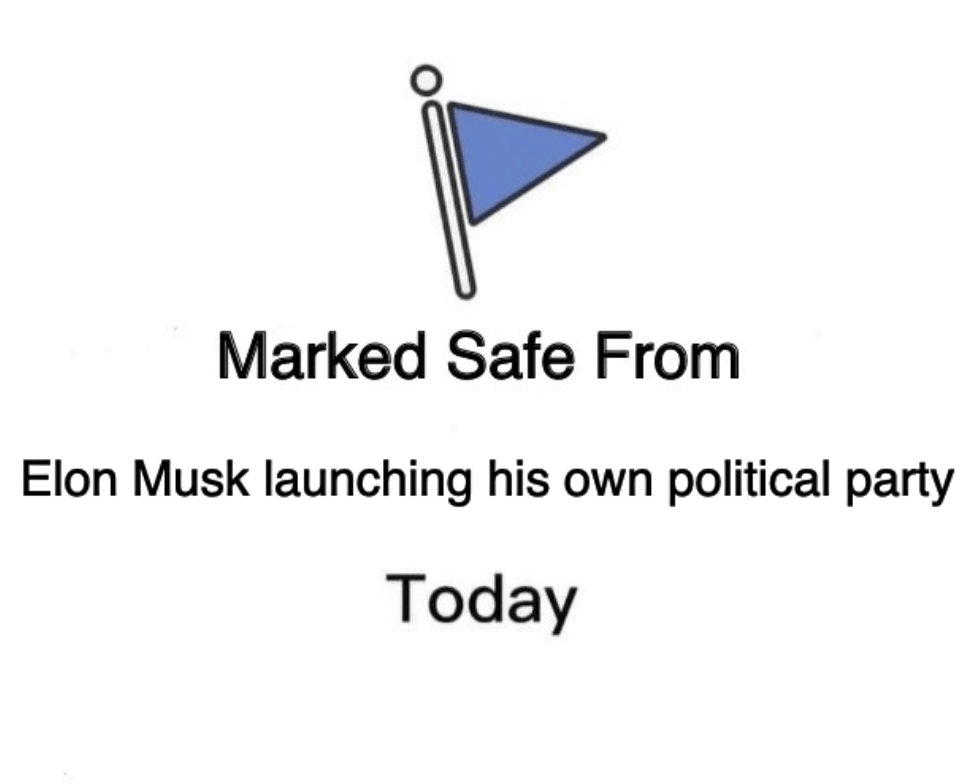Good morning. On this day in 1991, a fellow named Linus Torvalds shared a message with software developers about a little project he was working on—a free operating system.
“Just a hobby, won’t be big and professional like gnu,” he wrote.
Today, the open source OS kernel known as Linux absolutely dominates the brawny server market—particularly for cloud computing and especially for supercomputers and AI infrastructure.
Oh, and did we mention the Android mobile operating system? Yep, that’s based on a variant of the Linux kernel, too.
Cheers to you, Linus. Today’s tech news below. —Andrew Nusca
Want to send thoughts or suggestions to Fortune Tech? Drop a line here.
Intel agrees to give U.S. government a 10% stake

In case you missed it late Friday: President Donald Trump said that American chipmaker Intel had agreed to give the U.S. government a 10% stake.
It’s worth roughly $10 billion.
Intel was previously allocated billions in grants to build out manufacturing in the U.S. under the CHIPS and Science Act passed by Congress during the Biden administration.
Under the new agreement with Trump, the government will take equity in return for the grant money allocated to Intel through the CHIPS Act.
According to Intel, the U.S. will make an $8.9 billion investment in Intel common stock.
“The government’s equity stake will be funded by the remaining $5.7 billion in grants previously awarded, but not yet paid, to Intel under the U.S. CHIPS and Science Act and $3.2 billion awarded to the company as part of the Secure Enclave program,” the company said in a statement.
Intel added: “The $8.9 billion investment is in addition to the $2.2 billion in CHIPS grants Intel has received to date, making for a total investment of $11.1 billion.”
Intel shares jumped 5.5% on the news, though the former leaders of the Commerce Department’s Chips program wrote in Sunday’s Wall Street Journal that the deal won’t solve Intel’s biggest issue: a lack of foundry customers.
The agreement comes as the Trump administration has shown a recent willingness to take on a more interventionist role with U.S. companies.
“We do a lot of deals like that,” Trump said Friday. “I’ll do more of them.” —Marco Quiroz-Gutierrez
Thousands of private user conversations with Grok are exposed
Thousands of user chats with Elon Musk’s AI chatbot Grok are now publicly available on Google.
More than 370,000 Grok chats have been indexed by search engines, exposing hundreds of sensitive prompts that include medical and psychological questions, business details, and at least one password.
The chats have been exposed due to a Grok’s “share” feature—which users might use to send a record of a conversation to another person, or even to their own email.
The share feature creates a unique URL for the conversation. Those links were automatically published on Grok’s website and left open to search engines, seemingly without users’ knowledge.
Some of the transcripts available on Google Search that were reviewed by Fortune contained chats that went against Grok’s terms of service.
One chat showed Grok telling a user how to make a Class A drug, while another offered detailed instructions on how to assassinate Elon Musk. (xAI’s terms of service prohibit using Grok for “critically harming human life.”)
It’s not the first time users have found conversations with AI chatbots that they thought were private ending up online.
OpenAI, Meta, and Google each had similar features that allowed users to share their conversations via a link, which also made those conversations discoverable by search engines.
OpenAI pulled its feature entirely, calling it a short-lived experiment. Meta still allows shared chatbot conversations to be indexed by search engines. Google rescinded permission for chats with its AI chatbot, Bard, to appear in search results in 2023. —Beatrice Nolan
Nick Clegg dishes on Meta
Everyone’s talking about that newly published interview with Nick Clegg.
The deputy prime minister of the U.K. turned Meta global affairs chief hasn’t said much since leaving the Facebook, Instagram, and WhatsApp parent company at the beginning of this year. (Clegg was abruptly replaced by former Republican staffer Joel Kaplan.)
That changed on Saturday, courtesy of the Guardian and Clegg’s need to promote his new book, entitled How to Save the Internet: The Threat to Global Connection in the Age of AI and Political Conflict.
In the interview, Clegg offered frank remarks on an array of topics related to his six years at Meta.
On Meta’s leadership: “If I felt Mark Zuckerberg or Sheryl Sandberg were the monsters other people say they are, I don’t think I would ever have worked there.”
On Zuckerberg’s comments to podcaster Joe Rogan calling for more “masculine energy” at Meta: “When I think about all the problems of society, I don’t think the one thing we need is more masculinity.”
On the recent politics of the tech set: “In Silicon Valley, far from thinking they’re lucky, they think they’re hard done by, they’re victims. I couldn’t, and still can’t, understand this deeply unattractive combination of machismo and self-pity.”
On Silicon Valley, to which Clegg moved after joining Meta: “Everyone wears the same clothes, drives the same cars, listens to the same podcasts, follows the same fads. It’s a place born of immense sort of herd-like behaviour.”
The former statesman says his next chapter is committed to redirecting the European tech industry, currently “hurtling towards museum status.”
“If you fear everything new, you will do nothing for fear that something might go wrong,” he told the Guardian. “The whole point of being progressive is to think that tomorrow will be better than today.” —AN
More tech
—Perplexity Comet browser flaw. Hackers could make it perform actions users, uh, didn’t ask it to.
—Future Apple iPhones? An “Air” this fall, a foldable model next year, and a curved model in 2027.
—R.I.P. narrative podcasts like “Serial,” we hardly knew ye.
—Spotify Discovery Mode, which boosts reach in exchange for a lower royalty rate: “Most everyone is using it.”
—Sam Altman pitches U.K. tech secretary: OpenAI’s ChatGPT Plus for the entire country.
—Databricks to acquire Tecton, which helps companies build and deploy machine learning applications, to boost its AI agent capabilities.
—Meet Noland Arbaugh, Neuralink’s first brain implant patient. “The future is going to be weird, but pretty cool.”













